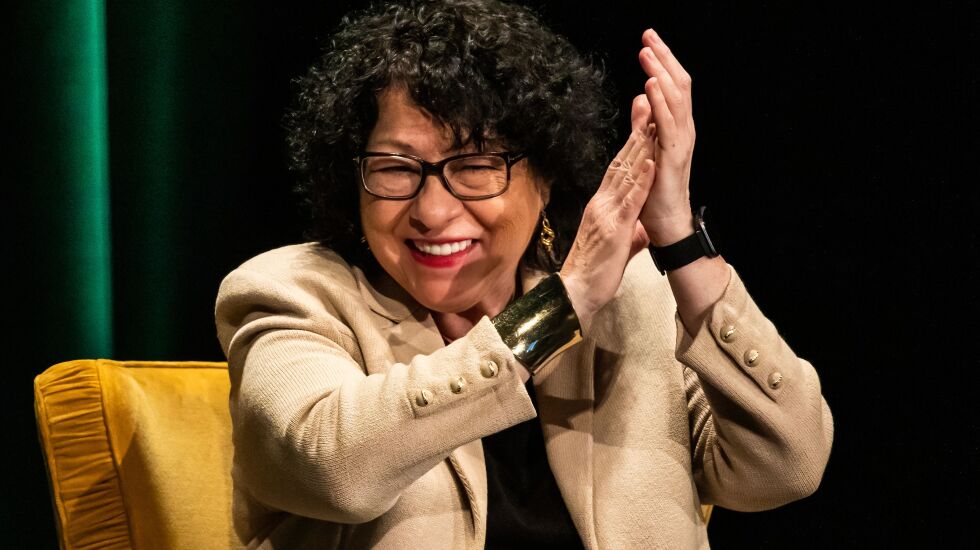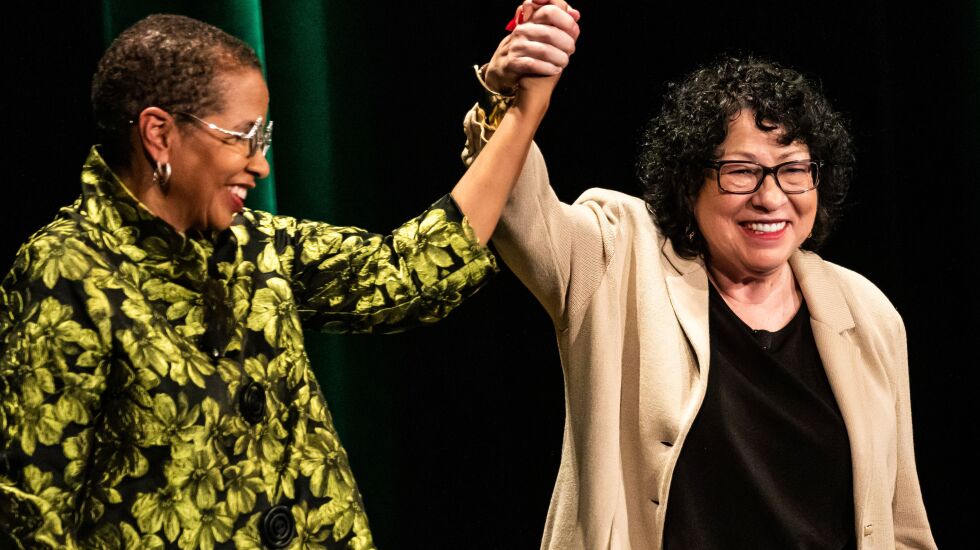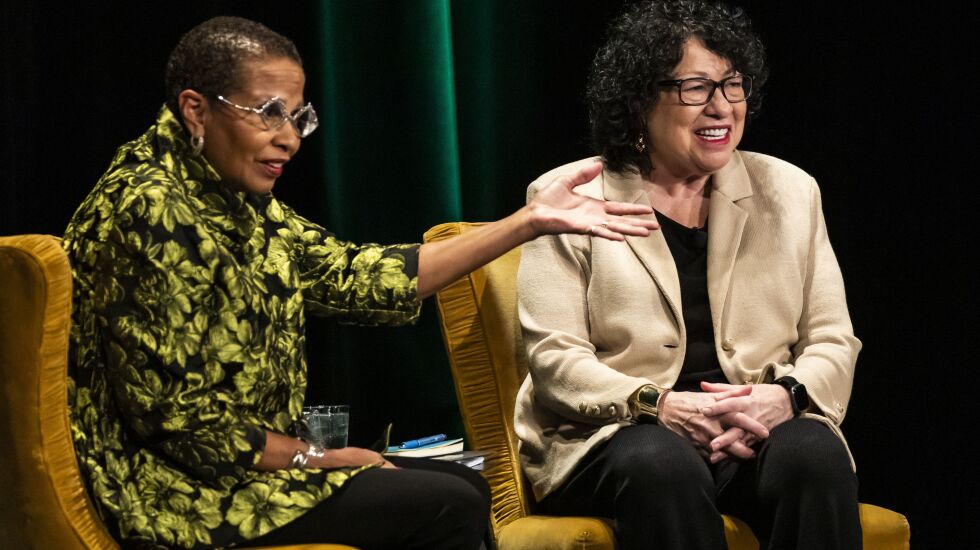
Supreme Court Justice Sonia Sotomayor gave a wide-ranging talk Thursday evening at Roosevelt University’s Auditorium Theatre.
The conversation, moderated by Judge Ann Claire Williams, a retired judge from the U.S. Court of Appeals for the Seventh Circuit, covered Sotomayor’s life and career, how she approaches her work as a judge and her thoughts on law and civic engagement.
Sotomayor was also awarded the Eleanor Roosevelt Social Justice Award. Thursday’s event was organized by Roosevelt University and A Pipeline Organization, a nonprofit established to encourage students from underrepresented groups to pursue careers and leadership opportunities in the legal profession.
As Williams asked her questions from the stage, Sotomayor spent most of the evening walking through the audience answering questions, shaking hands and signing copies of her books.
Sotomayor, who first was a trial judge and an appellate judge before her appointment to the Supreme Court, discussed her approaches to law and how she maintains her neutrality. She was appointed to the Supreme Court in 2009 by President Barack Obama.
“Laws can make it hard for us to see the legal system as fair,” Sotomayor said. “What’s fair is really a judgement of how we as a society are going to help each other. And how to share resources that are limited in as fair a way as we can. Those choices aren’t mine to make as a judge, but those are made in the laws that are passed.”

A Roosevelt University student asked Sotomayor what she would say to someone in the U.S. who feels disenfranchised and powerless.
“I ask people, ‘What choice do we have but to keep trying to change things?’ Because if you feel disenfranchised and let other people fight for what they think is right and you’re not willing to get up and fight, then you are just giving it to them,” Sotomayor said.
“We have civil rights because men and women died for them. How can we even think about giving up when others have spilled blood for justice?”
Sotomayor also talked about contentiousness and disagreements within the Supreme Court. And in particular, about her many clashes with Justice Clarence Thomas.
“I always try to find the good in everybody. I look for the things that they do that are good,” Sotomayor said. Clarence Thomas “cares about people. He cares about legal issues differently than me. Clarence, who grew up very poor, believes that everyone is capable of pulling themselves up by their bootstraps. I believe not everyone can reach their bootstraps.”
Outside of her legal work, Sotomayor talked about her love of working with and talking to kids. She’s written children’s books, and one of her first public appearances as a Supreme Court justice was on “Sesame Street.”
“I ask kids all the time, what does it mean that kids are the future? Most of them shrug and don’t know why. And I tell them, because we adults have failed you. We’re leaving you a really messed-up world.
“You are the future because you are going to do better than we did.”







